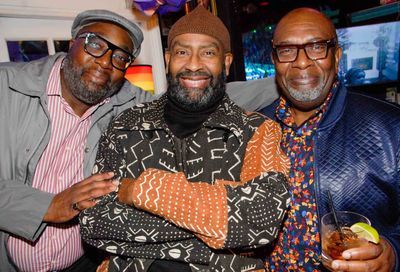In one of the blunter responses to the recent spate of student suicides, comedian Sarah Silverman said by video, ”Dear America: When you tell gay Americans that they can’t serve their country openly or marry the person that they love, you’re telling that to kids too. So don’t be fucking shocked and wonder where all these bullies are coming from that are torturing young kids and driving them to kill themselves because they’re different. They learned it from watching you.”
I have a quibble with Silverman’s generalization. Bullies are a minority. They thrive due to their adeptness in making accomplices of others who know better. This is infuriating and frustrating, but is also instructive.
Multiple CNN polls show that about 80 percent of Americans favor allowing openly gay people to serve in the military. While our rights should not be subject to a majority veto, in this case the majority supports us. Why doesn’t that count?
One obstacle is people’s conflict avoidance, which gives an advantage to zealots and aggressors. Another is the fact that news is heavily market-driven, which plays to the fears of the privileged. Yet another is structural: Conservatives’ power is disproportionate to their numbers because even sparsely populated red states get two senators. This is compounded by the GOP’s now-routine use of the filibuster, which rewards obstruction and legislative hostage-taking.
Notwithstanding the vital alternative of the courts, there is little chance of changing the structure of the Senate (which could favor us some day) or ending cable television’s preference for heat over light. Since the ground rules will not soon change, we face the challenge of beating the bullies at their own game on the playground and at the ballot box.
Bullying is an ancient sport. The Gay, Lesbian, and Straight Education Network (GLSEN) has been working to overcome it for years. But the old social dynamic that inflates a bully into a mob now has an accelerant in the form of pocket-sized microprocessors, data storage, digital cameras and the Internet. Forty years ago, miniature cameras were the stuff of spy movies, not standard student equipment. Likewise among adults: Before the advent of blogs, the means of mass communication were in the hands of a few. Journalism had gatekeepers, for good and ill.
Technology is a two-edged sword, but its influence is here to stay. We have to master it. Moral education has not kept pace with it. But it’s not just kids whose judgment isn’t equal to the power of their hand-held devices. Stand on a street corner at rush hour and count the distracted drivers. As a niece in college tells me, cracking down on texting while driving only causes people to hold their cells lower so police cannot see them, thus — like a diversionary campaign ad — taking their eyes even farther from what they are hurtling toward at 70 miles per hour.
We need the equivalent of millions of tweets that say to both students and voters, literally and figuratively, ”Watch where you’re driving!” Dan Savage’s powerful It Gets Better Project shows how new social media can be used to counter the very cyber-bullying the media facilitate.
But as we lend troubled LGBT youth our confidence, and point them to resources like The Trevor Project to help them get past their despair, we know that their entire peer group needs better moral guidance and involvement by responsible adults. Those of us awake to the problem must take the lead as organizers and advocates in turning the tables on the bullies and junk-science peddlers.
It’s not that ”Americans are stupid,” as Bill Maher says. It’s that they are distracted. Let’s use the same tools as the bullies to get their attention.
Richard J. Rosendall is a writer and activist. He can be reached at rrosendall@starpower.net.




















